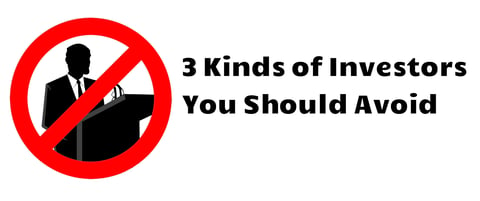
In the lifetime of any growing small to medium-sized enterprise there could come a time when you’ll need to start looking for investors and business partners. Investors play an important role in providing capital and resource-based support to your business in exchange for potential/future recompense. While you’re still in charge of steering your company through the economic landscape, investors aid you as you map out your business expansion and development.
Needless to say, finding investors can be difficult considering that you’ll need to find people who believe in you, your business acumen and your product/service. However, what’s even more gruelling is finding the right investors that are in it with you for all the right reasons and can support you when the going gets tough.
If you don’t have a virtual CFO to advise you on this matter, here’s our advice: stay on your toes when dealing with potential investors. Angel investors might seem heaven-sent, but you may find that they actually bring with them problems that could hinder or even drag you and your business down.
To get you started, here are the kinds of investors you should avoid, why they’re not ideal for your business and how to identify them.
Control freaks
Control freaks, intentionally or otherwise, interfere by micromanaging you and your business. While they might have valid and logical advice, you are the owner of your business and shouldn’t be nagged or controlled by other people. Otherwise, what’s the point of starting a business?
Investors should get on board because of their faith in you and your product/service, not to manage you and your business. Avoid people who have tendencies to interfere and often crunch the numbers to prove you wrong.
Since they want to have things their way, who knows, maybe you’re bound for a hostile takeover somewhere down the line - something you absolutely do not want to happen.
Deadweights
The inverse of control freaks, deadweights have nothing to bring to the table but their money. Due to their lack of business savvy, they don’t have much insight, contacts, experience and suggestions to offer and don’t show enthusiasm about your company.
Check your investor’s interest and motivations regarding your business. If their sole purpose of being there is to make money, they’re deadweights and, in the long run, you’re probably better off without them.
Predators
While the previous bad investors are more a burden than an actual threat, predators are the most detrimental and dangerous investors you could ever have the misfortune to encounter. Initially, they might seem friendly and feign passion towards your business. However, they are solely motivated by their desire to make money at your expense.
Some predators might take advantage of your company’s stature, contacts and resources for their own good. Other predators take advantage of new entrepreneurs by looking for weak spots and problem areas in your business that they can use as leverage to sue you or take over your company.
Weeding out predators might be difficult as they are purposefully trying to get in your good graces. On the other hand, it’s also discouraging for other investors if you’re too suspicious or don’t give others benefit of the doubt. To ward off predators, work with your lawyers in creating iron-clad documents and terms. Make sure that you’re attracting the right kinds of investors - ones who are in it for the long run.
Screening your investors can be tedious. However, it’s the only way for you to know if you’re working with people who are aligned with your frame of mind. Find the right investors and work with people who genuinely believe in you and your company.
Want more insights regarding investors and how to find the right ones? Schedule a FREE, no-obligation consultation with our team of experts at myCEO.

